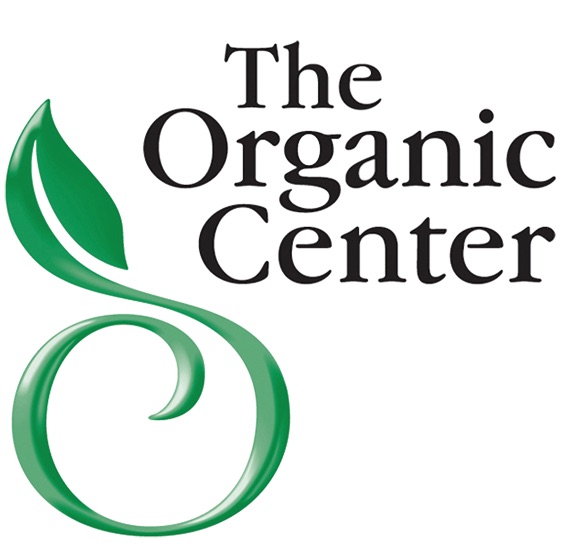
USDA Finally Passes Long-Overdue Origin of Livestock Rule, Small Organic Dairies are Still at Risk
(Photo courtesy of the Northeast Organic Family Farm Partnership)
How Organic Insider operates: We accept no advertising, we have no paywalls and we make our newsletters free to everyone — because vital information about our industry needs to get out to as many people as possible. Please consider supporting our work, whether you are an individual or a company. Thank you so much.
Last fall, we told you about the 89 small organic dairy farmers in the Northeast whose contracts were abruptly cut by Danone — and the subsequent 46 organic dairy farmers who were cut by Maple Hill Creamery.
When the USDA was pressured by politicians and the industry to intervene and help save them, the primary message to the agency was — finalize the damn Origin of Livestock rule, a rule that governs how organic dairy operates and something that the organic industry has been fighting for since 2005.
Yesterday, at last, the Origin of Livestock rule was announced.
And had the USDA finalized this rule in 2015, there is a very strong likelihood that these 135 small organic dairy farmers would never have been in jeopardy in the first place.
HOW THE LOOPHOLES WERE EXPLOITED
With no Origin of Livestock rule finalized, Big Organic Dairy was able to masterfully manipulate the system.
They set up different LLCs and moved livestock around from Point A and Point B, completely circumventing the spirit of the proposed rules and flooding the market with cheap “organic” milk.
Small organic dairies in the Northeast could never do this. They didn’t have the money and legal engineering expertise. Most importantly, they intended to deliver the purest organic product possible to consumers.
As a result, these small organic dairies suffered immensely and were driven out of business to a worrying degree, all of which has decreased the availability of authentically-produced organic milk. The vast preponderance of unauthentically-produced and lower-quality organic milk, now in refrigerated cases across the country, was documented in the 2017 must-read investigation by The Washington Post.
MANY OF THE 135 SMALL ORGANIC DAIRIES ARE STILL IN JEOPARDY
With this Origin of Livestock rule now finalized, we still have to worry about the fate of small organic dairy farms, as they remain in a very precarious position. Tremendous residual damage has accumulated over the last decade, and the rule doesn’t go into effect for another year.
As such, efforts to save the 135 small organic dairies are moving forward with real urgency.
Here’s where things stand.
Approximately 10 of those farmers are retiring, 90 of them have been offered letters of intent from Organic Valley and 5 are expected to be picked up by Stonyfield. That leaves about 30 of them with no long-term homes.
Yet, what also needs to be pointed out is that Organic Valley has offered letters of intent to these 90 farmers. They are not coming in as full members but will have ‘reserve group’ status, and the price that these 90 farmers will receive for their milk is largely dictated by demand in the marketplace, which, according to Ed Maltby of the Northeast Organic Dairy Producers Alliance, “may be lower than the cost of production.”
But the reality is that as a responsibly-run business, Organic Valley can only take on so much supply, commensurate with market demand. And as much as it wants to help all small organic farmers, the company cannot create demand out of thin air.
All this being said, it is an extremely positive and generous step that Organic Valley has offered letters of intent because it does give these 90 farmers some degree of hope and demonstrates real concern for their well-being. However, by no means have the farmers’ problems been solved.
Simultaneously, the Northeast Organic Family Farm Partnership (NOFFP) has been working overtime to raise awareness of this issue and to increase consumer and institutional demand for milk produced from Northeast organic dairies. This is critical.
Its tireless efforts have been paying off, with the Neighboring Food Co-op Association and Independent Natural Food Retailers Association both coming on board, foodservice operator Sodexo has committed all of its university accounts in the Northeast to the initiative, and restaurateurs Dan Barber and Tom Colicchio have each committed to purchasing 50% of their dairy needs from NOFFP partner farms for their four New York restaurants.
Conversations with major retailers such as Whole Foods Market, Stop & Shop and Hannaford are ongoing, and the NOFFP is making a big push to get restaurants in the Northeast involved with the partnership.
HOW WE CAN HELP
Every day is critical for these small organic farmers, and there is no time to waste.
Consumers in the Northeast can help by signing the NOFFP pledge here.
Retailers, restaurants and institutional buyers in the Northeast can sign on as NOFFP retail partners.
At last, the Origin of Livestock rule is finalized, but saving all of these small family farmers still needs our full attention. And please be sure to buy your next gallon of organic milk from a NOFFP brand partner.
 |
With gratitude, 
Max Goldberg, Founder |
Quick Hits
* Stonyfield’s Gary Hirshberg is mulling a run for governor of New Hampshire.
* Investigative watchdog OrganicEye is no longer a subsidiary of Beyond Pesticides and is now an independent organization. Joining Mark Kastel are long-time organic industry veterans Jim Gerritsen, Bill Heart and Will Fantle.
* This October, Rodale Institute will be hosting The Regenerative Healthcare Conference.
* Regenerative cannabis standard Sun+Earth has launched a new campaign called Weed Like Change!
* The 14 most beautiful jungle hotels around the world.
* Richman Law & Policy is doing some great work fighting against deceptive labeling by food giants. (NYT Subscription)
* California’s climate strategies ignore pesticides — Part I and Part II.
* Apparently, there are only four breweries in the world making organic ginger beer.
* Impossible Foods should be called Impossible Patents.
* In case you missed my last newsletter: Synthetic Biology and Regenerative Organic at Expo West 2022.
Behind the Rebrand with Cosmic Bliss


3 Questions with Jason H. Karp, CEO and Founder of HumanCo, the parent company of Cosmic Bliss
Switching from a 17-year plant-based brand to a brand that offers both plant-based and grass-fed dairy is a very big decision. When did you first start thinking about making this move and what does the new name represent?
As we doubled down on the brand’s mission and purpose to help flip the food system to more sustainable offerings, we knew we needed to maximize our impact. And the more we talked to consumers and looked at market data, the more we realized we needed to continue with our plant-based, high-quality frozen desserts while also offering a more humane, sustainable option to those individuals who still prefer dairy ice cream.
We started to think about this more than a year ago, and the new brand name, packaging design and products were all crafted with the utmost intention to cohesively bring our more inclusive brand purpose to life.
Our new name, Cosmic Bliss, represents the out-of-this-world creaminess and taste that our products deliver, the vastness of our portfolio that now spans both plant-based and grass-fed dairy desserts, and the intention with which each ingredient is sourced. All of this culminates in the pure bliss you get in every spoonful of our ice cream.
Can you discuss the key visual and verbal elements of the new packaging?
Our new packaging brings us back to our roots and proudly celebrates the essence of Bliss! With our iconic symbol front and center, radiating positive, mindful and blissful energy, our new look symbolizes the impact we can all make when we come together and take care of each other and the planet.
What were the key challenges that you faced along the way?
Our sourcing standards are some of the highest in the industry, and finding the right partner — who was as mission-aligned as we are and was implementing organic, humane practices with its dairy farms — was of critical importance.
Even though the demand for organic grass-fed dairy is growing, the supply for organic grass-fed dairy is niche and highly specialized. So, the process to find the right partner was a challenge. The scarcity of this type of dairy is also what makes the launch of organic grass-fed dairy an important opportunity to provide a meaningfully different product than what is out on the market today.
We also had to educate ourselves in this space, as it was new territory for us, and this involved partnering with scientists and researchers in sustainable agriculture. In the process up to launch, it also meant having our entire team develop a much deeper understanding of how a diverse ecosystem is so beneficial for soil health and the overall environment.

Weekly News Summaries

EPA Approves Release of 2.4 Billion GE-Mosquitos in California
This completely unnecessary technology is set to be unleashed on yet another state. Tragic.

Toxic Sanitizer May Soon be Used on Organic Chicken
A petition has been submitted to allow the use of cetylpyridinium chloride on raw organic poultry.

Farmland LP Completes Second Fund, Raises Over $130 Million
Farmland LP, the largest manager focused on converting conventional farmland to organic in the U.S., today announced the closing of Vital Farmland REIT LLC, raising over $130 million in equity capital.


FDA will Conduct Research on Front-of-Pack 'Healthy' Symbol
By Megan Ponski
How can anything that is sprayed with cancer-causing glyphosate or contains GMOs be considered healthy?

Native Pet raises $6M Series A
By Nathan Rubbelke
The pet nutrition startup that sells organic and natural pet supplements for dogs has closed on a Series A, led by CAVU Venture Partners.

They Want Us to Believe that Gene-Edited Greens are Now "Conscious"
Backed by Bayer (Monsanto), these CRISPR and gene-edited greens will be hitting the shelves in 2023.


Consumer Reports: Dangerous PFAS Chemicals Are in Your Food Packaging
By Kevin Loria
'Forever chemicals' were found in bowls, bags, plates and wrappers, even from some companies that say they've phased them out.

Plant-Based Foods see Sales Growth Slow
By Mary Ellen Shoup
According to new data, the overall plant-based foods sector reported a significant slowdown (but still positive) growth for 2021 vs. 2020, with plant-based meat sales seeing flat growth while other categories grew by single digits.

Glyphosate detected in 99% of the French Population
People whose diets consisted of 85% organic foods had lower levels of glyphosate in their urine.
Want to share this newsletter on social media? You can use this link: Newsletter Link
The material in this newsletter is copyrighted and may be reprinted by permission only. All requests must be in writing. Please use our contact form to request republication rights.
Newsletter Archive
Quick Hits
* Stonyfield’s Gary Hirshberg is mulling a run for governor of New Hampshire.
* Investigative watchdog OrganicEye is no longer a subsidiary of Beyond Pesticides and is now an independent organization. Joining Mark Kastel are long-time organic industry veterans Jim Gerritsen, Bill Heart and Will Fantle.
* This October, Rodale Institute will be hosting The Regenerative Healthcare Conference.
* Regenerative cannabis standard Sun+Earth has launched a new campaign called Weed Like Change!
* The 14 most beautiful jungle hotels around the world.
* Richman Law & Policy is doing some great work fighting against deceptive labeling by food giants. (NYT Subscription)
* California’s climate strategies ignore pesticides — Part I and Part II.
* Apparently, there are only four breweries in the world making organic ginger beer.
* Impossible Foods should be called Impossible Patents.
* In case you missed my last newsletter: Synthetic Biology and Regenerative Organic at Expo West 2022.
